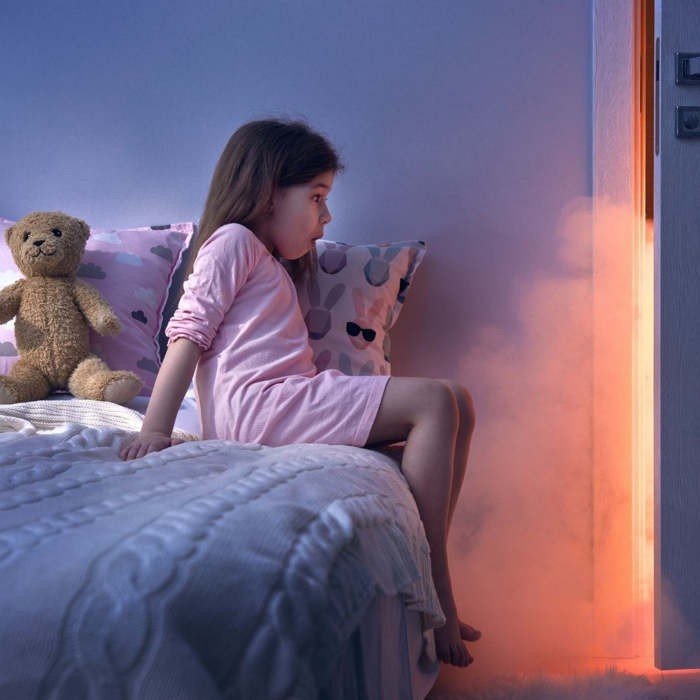
Nightmares and night terrors in children
Children's sleep can be disturbed by nightmares. It is important to know how to distinguish nightmares from night terrors and to look for their origin in order to react in an appropriate way.
How do children's nightmares manifest themselves?
The nightmare is the paroxysmal manifestation of an anxiety. It occurs during the REM sleep phase - most often at the end of the night - during which the brain is in full activity. The child wakes up, cries, screams, and seems panicked. It is important to reassure, cuddle and stay with the child until he or she is completely calm. Helping them to get back in touch with reality helps them to fall back asleep. Later in the day, you should take the time to have the child tell you about the nightmare. This allows the child to express his fear, which is easier when he feels understood. Parents should therefore help them to play it down without ever making fun of them or scolding them for it.
What to do if the child has nightmares?
Nightmares are not a cause for concern as long as they occur episodically. They are even a normal part of learning. Every day the child learns, experiences very strong emotions, and nightmares are the expression of an awareness of the notion of danger. In the course of reading, watching cartoons on television and playing games, the child is confronted with characters who are not always very friendly. They learn about malice, frustration, fear, sadness and anxiety. These are all feelings that nightmares express. That is why it is advisable to talk about each of your anxious dreams during the next day.
If nightmares are frequent, they should alert the parents. This is also the case for post-traumatic nightmares, i.e. those that occur after an extremely traumatic event. It is essential that the child is treated by a specialist without delay.
Advice on how to avoid nightmares in children
In order to prevent nightmares in children, parents should take care to filter the images that they watch, particularly on television, computers or tablets. Similarly, the books available to the child should be adapted to his or her age and/or ability to understand. Any frightening situation should be explained to the child, which will reassure him/her as soon as he/she is able to understand what he/she sees or hears.
Finally, at bedtime, emotions that are too strong and likely to cause fear should be avoided. For some children, fear of the dark can cause nightmares. A small nightlight is often all that is needed to reassure them completely and allow them to sleep without nightmares.
Whatever the cause of the nightmares, it is not advisable for the child to end the night in the parents' bed. On the contrary, they should be allowed to go back to sleep in their own room. They must understand that they are as safe there as in their parents' bed. This is a more or less long learning process, but it is important for the child's development.
Advice on how to avoid nightmares in children
In order to prevent nightmares in children, parents should take care to filter the images that they watch, particularly on television, computers or tablets. Similarly, the books available to the child should be adapted to his or her age and/or ability to understand. Any frightening situation should be explained to the child, which will reassure him/her as soon as he/she is able to understand what he/she sees or hears.
Finally, at bedtime, emotions that are too strong and likely to cause fear should be avoided. For some children, fear of the dark can cause nightmares. A small nightlight is often all that is needed to reassure them completely and allow them to sleep without nightmares.
Whatever the cause of the nightmares, it is not advisable for the child to end the night in the parents' bed. On the contrary, they should be allowed to go back to sleep in their own room. They must understand that they are as safe there as in their parents' bed. This is a more or less long learning process, but it is important for the child's development.
No hay comentarios:
Publicar un comentario